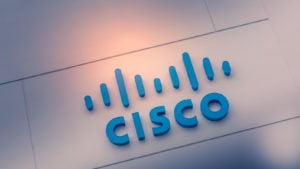Cloud computing refers to all of the infrastructure required to store and host the internet and its websites including servers, data centers, storage, networking, and development tools located off premises. Individual users and institutional users alike utilize the cloud. Those services and infrastructure continue to grow at a rapid pace making cloud stocks an important subsector.
Investors will continue to put their capital behind cloud companies because the overall growth rate projections are strong. It is expected that compound annual growth will average above 16% in the years between 2023 and 2028. Further, AI is a strong component of the cloud sector that promises to potentially increase growth even further. The cloud stocks below will continue to have a high likelihood of providing healthy returns for investors.
Amazon (AMZN)

Amazon (NASDAQ:AMZN) is the king of the cloud. Recent data suggest that the company controls roughly 30% of cloud market share. Its primary competitors are the two companies listed directly below who respectively account for 20% and 10% of cloud market share.
Amazon is exciting for a lot of reasons. As a massive tech company, it has a lot of ways to win and many business segments that produce large sums of money and sales. but just how much of the company’s current business is attributable to its cloud business?
The answer to that question can be found in the company’s most recent earnings report. of the $143.1 billion in sales at Amazon in the third quarter, $23.1 billion were attributable to AWS. The rate of overall growth was very similar to the rate of growth of AWS. That’s not particularly important but I thought that it might give readers some context.
Amazon is currently making a big push through AWS to upskill the labor force with marketable AI training. The recent emergence of AI and its application to the cloud and data centers gives Amazon yet another catalyst that promises to spark further growth in the already massive firm.
Microsoft (MSFT)

Microsoft (NASDAQ:MSFT), as mentioned, is the second largest cloud provider commanding 20% of market share. Like Amazon and its stock, Microsoft has many avenues that lead to continued future growth.
One main differentiator between Microsoft and Amazon in terms of cloud is that cloud is much more relevant to the former than the latter. Microsoft’s cloud, called Azure, is both growing faster and is a larger contributor to the company overall than is the cloud for Amazon.
Microsoft reported $56.5 billion in revenues during the most recent quarter. Of that, $31.8 billion were attributable to the company’s cloud business. That’s roughly 60% of revenue whereas Amazon’s AWS Cloud accounts for roughly 15% of its business.
Thus, there’s an argument to be made that investors who are seeking pure cloud revenues should preference Microsoft over Amazon. One caveat here: despite the fact that Azure accounts for more revenues than does AWS, AWS has much greater server capacity.
Further confounding the argument is the fact that Azure’s market share has doubled in the last 5 years. Choosing one over the other isn’t straightforward so it’s perfectly logical for investors to choose both.
Google (GOOG,GOOGL)

I characterized Google (NASDAQ:GOOG, NASDAQ:GOOGL) as the laggard of the three leading cloud computing stocks. While it is true that Google’s cloud is the smallest in terms of revenues, it’s also true that its growth is the fastest of the three.
Google’s Cloud grew by 22% during the third quarter, reaching total sales of $8.4 billion. It was the fastest growing of the three cloud giants. Again, it’s easy to make an argument that favors any of the three as a preferred cloud stock investment.
So, what will Google Cloud look like in 2024 and where will the company focus? The answer to that question can be found in this article. Google will continue to focus its cloud business in a manner that optimizes the generative AI opportunity. In other words, the company will continue in 2024 to do what it did in 2023. It’s clear that the company has identified a strategic focus on the provision of enterprise life cycle Cloud AI services. That was a mouthful but the company is basically helping to leverage its cloud and AI through long-term, high-value contracts.
Snowflake (SNOW)

Snowflake (NASDAQ:SNOW) is a data analytics software firm that operates on cloud computing platforms. Its software leverages the cloud platforms of the firms mentioned above in many cases. And like those firms, Snowflake sees a massive opportunity and 2024 in generative AI.
There are many reasons to believe that Snowflake is in prime position to grow rapidly in 2024. In order to understand that opportunity, let’s look back to 2022. It was during that time that many companies decided to optimize — aka cut spending — in cloud investment and everywhere else.
Cloud spending declined and since then has continued to slowly rebound. The point I want to make here is that Snowflake is rebounding and growing much faster than those larger companies mentioned above. During the most recent quarter, Snowflake’s revenues grew by 34%.
This leads me to my next point: growth is rapidly coming back into fashion. The worst of macroeconomic cyclicality is past us and rate cuts are on the horizon. Snowflake is primed to garner a lot of investment for that reason. SNOW shares have much greater potential to provide rapid returns than those firms do.
Cisco Systems (CSCO)

Cisco Systems (NASDAQ:CSCO) continues to be one of the best and most stable value stocks in the cloud and AI space. I continue to recommend it for many reasons which relates to that stability.
For example, Cisco Systems pays a dividend yielding more than 3% with a 0.47 payout ratio which hasn’t been reduced since 2011. Further, CSCO shares provide good value based on their P/E ratio of just above 15, which is slightly below where it has been over the past decade.
It’s a more conservative oriented Investments which is perfectly logical as value stocks are generally great investments.
Anyway, there is news about Cisco Systems as it relates to the cloud. The company is buying private firm Isovalent which focuses on cloud native security. It’s a strong sign that Cisco Systems will continue to focus on strengthening its security business overall. Security continues to be a major concern for enterprises of all sizes especially as artificial intelligence develops. The recent acquisition gives investors yet another reason to consider CSCO shares.
Palo Alto Networks (PANW)

Palo Alto Networks (NASDAQ:PANW) is a stock to consider for investors who like Cisco Systems but perhaps want a bit more growth. Both firms provide security delivered through the cloud with Palo Alto Networks being the younger, less established, more growth oriented of the two.
That truth is reflected in the company’s earnings report which shows that revenues grew by 20% during the most recent quarter. However, Palo Alto Networks does not pay a dividend, as you might expect given its rapid growth rate.
Given how important cloud security has become and will continue to be, Palo Alto Networks is a reasonable investment. That’s especially true given the fact that the company’s Non-GAAP operating margin and net income both exceeded guidance during the quarter. That gave the company the confidence to increase guidance for both of those metrics in the coming quarter.
In short, if you’re forced to make a choice between cloud security firms mentioned here, it may just come down to a growth versus value argument. Palo Alto Networks is a strong choice for those who prefer growth.
Veeva Systems (VEEV)

Veeva Systems (NASDAQ:VEEV) will continue to attract investors who are interested in the life sciences industry. The company provides cloud-based services for firms in that particular sector with a focus on customer relationship management (CRM). Its stock carries an ‘overweight’ rating and offers upside to investors at the moment.
While I characterized Viva systems as working in the life sciences industry it really works in the pharma industry. The company provides services that help pharma firms throughout the drug development life cycle from discovery through commercialization.
The reason that I think Veeva Systems is a strong choice among cloud stocks is that the company is rapidly maturing. Its growth isn’t spectacular, although revenues did increase by 12% to $616.5 million in Q3.
Instead, what I like is the fact that it produces strong net income with $135.2 million in the most recent quarter. The point here is that Viva systems net income increased by 25% which is essentially double the growth rate of its top line.
On the date of publication, Alex Sirois did not have (either directly or indirectly) any positions in the securities mentioned in this article. The opinions expressed in this article are those of the writer, subject to the InvestorPlace.com Publishing Guidelines.

